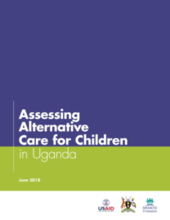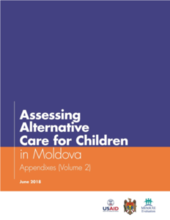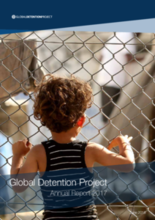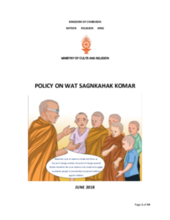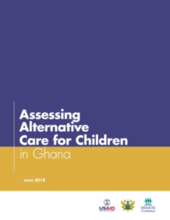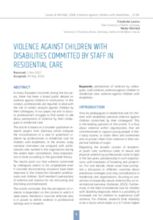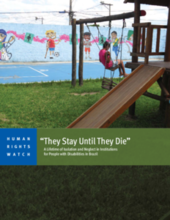Displaying 671 - 680 of 1511
This report presents the findings from an assessment workshop aimed at informing action planning to address high-priority needs identified in alternative care for children in Uganda.
This report presents the findings of an assessment workshop aimed at informing action planning to address priority needs identified in alternative care for children.
This report, in Armenian, presents the findings of an assessment workshop aimed at bringing together key stakeholders—decision makers, policy developers, service providers, civil society representatives, and donors—to assess and identify the main care reform areas in which action is needed.
This annual report from the Global Detention Project presents an overview of its efforts and achievements in exposing the practices and impacts of immigration detention 2017, including the detention of migrant children.
En este documento se presentan los principales resultados de una investigación se propuso conocer las dinámicas y trayectorias de transición del sistema de cuidados alternativos a la autonomía de los y las jóvenes que vivieron en instituciones de cuidado residencial de la Ciudad de Buenos Aires, Argentina.
This Wat Sangkahak Komar policy (or Child Safeguarding Policy) is part of the comprehensive mechanism within pagodas in Cambodia to respond to suspected and reported cases of violence against or abuse of children.
This report, in the Moldovan lanugage, presents the findings of an assessment workshop aimed at informing action planning to address priority needs identified in alternative care for children in Moldova.
This report presents the findings of an assessment of Ghana's national alternative care system aimed at supporting the government and its partners in continuing to advance alternative care.
This paper aims to discuss professional’s struggle to find words to talk about perceptions of violence by their colleagues in residential care.
This report documents a range of abuses against children and adults with disabilities in residential institutions in Brazil.

